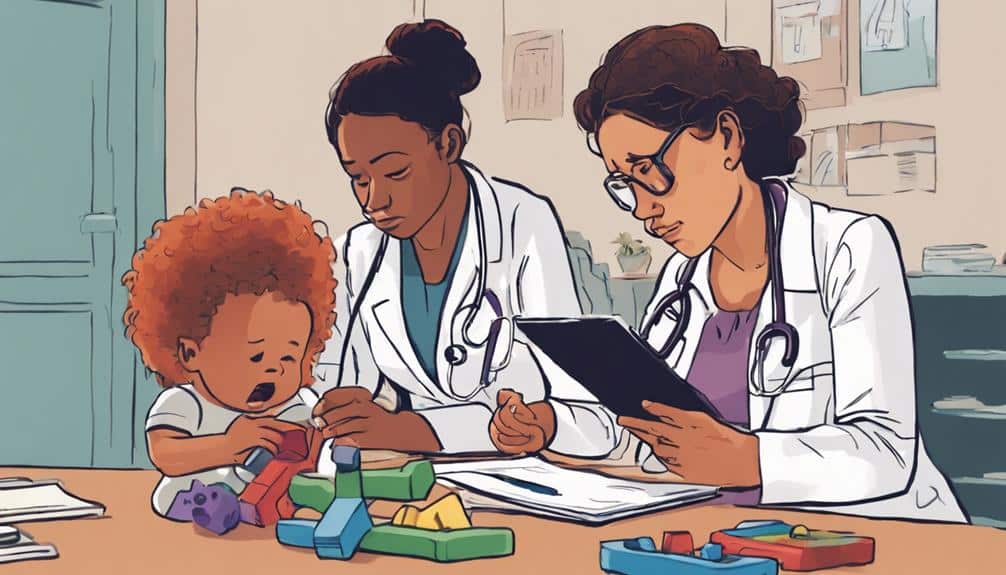Child developmental delay occurs when a child does not reach expected milestones by the typical age. Early identification and intervention are key to supporting a child’s growth and minimizing long-term impacts. Understanding the signs of child developmental delay and the steps to address them empowers parents and caregivers to provide timely, effective support for healthy development.
Signs of Developmental Delay
Developmental milestones provide a framework for tracking child development and identifying child developmental delays early. Children often begin speaking around two years old and form sentences by three years old. Missing these markers may indicate a speech and language delay requiring professional evaluation.
Motor development delays become apparent when children struggle with age-appropriate physical skills. These may include delayed walking, difficulty with fine motor tasks, or challenges with gross motor skills. Cognitive delays manifest as difficulty with problem-solving or understanding basic concepts appropriate for the child’s age.
Social and emotional delays present as difficulty interacting with others or problems expressing emotions appropriately. Children may appear withdrawn or struggle with forming relationships. Parents should document specific observations and discuss concerns with healthcare professionals during routine checkups.
Causes and Risk Factors
Several factors increase the likelihood of developmental delays. Low birth weight and premature birth create increased vulnerability to developmental challenges. A family history of speech or developmental delays also increases the risk, suggesting that genetic components may influence development.
Medical conditions contribute to developmental delays in various ways. Hearing impairment prevents children from learning language through typical auditory input. Intellectual disabilities affect the ability to process and understand information. Autism spectrum disorders impact communication and social development, often resulting in delayed or atypical language acquisition. Environmental factors also influence development. Limited exposure to language-rich environments or exposure to toxins may contribute to delays.
The Need for Early Intervention
Early intervention programs offer specialized services tailored to address developmental delays during key periods of brain development. The brain’s plasticity during early childhood allows for more effective therapeutic interventions. Physical, occupational, and speech therapy form the foundation of most early intervention programs.
Speech therapy addresses communication delays through targeted exercises and techniques that improve language comprehension and expression. Physical therapy focuses on gross motor skills, while occupational therapy targets fine motor skills and daily living activities. Early intervention services also provide family support and education. Parents learn strategies to support their child’s development at home, creating consistent therapeutic environments.
Steps To Support Your Child
Parents should maintain regular developmental monitoring through routine pediatric visits and developmental screenings. These assessments help identify potential concerns before they become more significant challenges. Keeping detailed records of developmental milestones and concerning behaviors provides valuable information for healthcare providers.
Creating language-rich environments supports speech and language development. Reading daily, engaging in conversations, singing songs, and narrating activities throughout the day expose children to a variety of vocabulary and language patterns. Limiting screen time and encouraging interactive play promotes natural development of communication skills.
Book Your Child Developmental Delay Assessment Today
Addressing developmental delays requires prompt action and professional support. Regular monitoring, early identification, and appropriate interventions form the foundation of effective developmental support. Parents who notice potential delays should seek professional evaluation rather than adopting a wait-and-see approach. For concerns about your child’s development, contact a pediatric specialist today to book a child developmental delay assessment.

